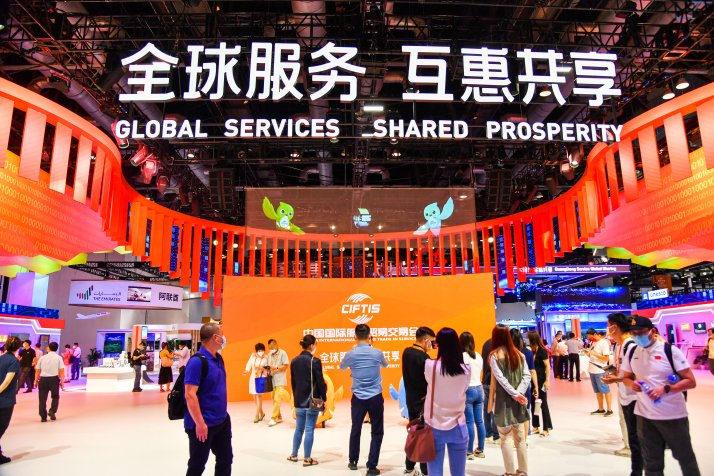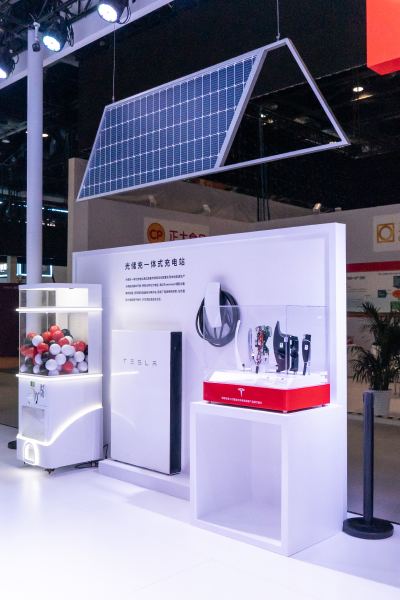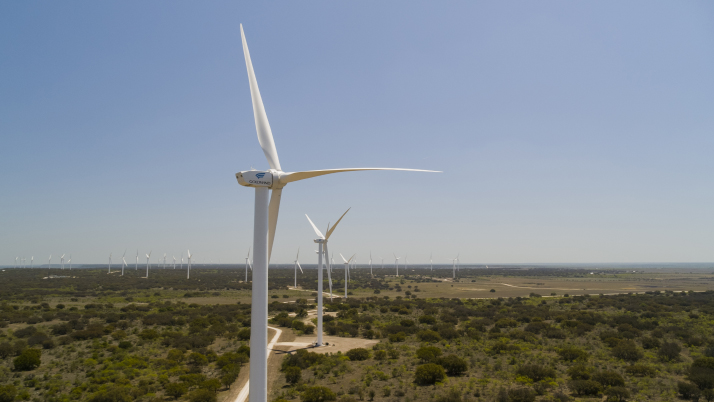| Business |
| China's potential in trade in services on full display at annual fair | |
|
|
 Exhibitions of the 2022 China International Fair for Trade in Services (CIFTIS) open at the China National Convention Center in Beijing on September 1 (WEI YAO)
Now more than just a producer of processors, U.S. tech firm Intel's presence has been growing in the Chinese market. The company's artificial intelligence (AI) technologies were used during the closing ceremony of the Beijing Winter Olympics in February. Snowflakes on the floor beneath performers gleamed where they stepped. The same technology was again put on display at the 2022 China International Fair for Trade in Services (CIFTIS) in Beijing from August 31 to September 5. As presented on the fair, Intel's AI system traces the movement of athletes without wearable devices to help with their training. In cooperation with Chinese tech company Baidu, Intel has developed a platform known as PaddlePaddle that facilitates intelligent industrial upgrading. As part of efforts to increase sustainability, the company is also using big data to monitor energy use during its laptop production and collecting heat from its data centers for further use. The 2022 CIFTIS theme was Cooperate for Better Development, Innovate for a Greener Future. The fair saw the attendance of some 400 corporations on the Fortune Global 500 ranking and global leaders in related industries. A new exhibition area for environmental protection was added this year, with enterprises engaged in low-carbon development debuting their green technologies. Trade in services covers fields including transportation, tourism, telecommunications, construction, advertising and computing. Data from the Ministry of Commerce showed that China's service trade value grew 20.7 percent year on year to 3.39 trillion yuan ($492.6 billion) in the first seven months of 2022. The service trade deficit dropped 20.1 percent to 107.73 billion yuan ($15.5 billion) between January and July. Over that period, China's trade in knowledge-intensive services rose 10.2 percent year on year. Travel service trade has also resumed, with its volume expanding 7.5 percent from the previous year to 462.23 billion yuan ($66.6 billion). "China's trade in services had already recovered to pre-pandemic levels by late 2021. It has become a new driving force for the overall foreign trade growth," Nie Pingxiang, a researcher with the Chinese Academy of International Trade and Economic Cooperation under the Ministry of Commerce, told Beijing Review. Last year, the Chinese Government released the first negative list for cross-border trade in services in the Hainan Free Trade Port, which tables the areas out of bounds for foreign investors. Market access has been eased in more service sectors, ranging from finance to healthcare. "Service trade will boost the opening up of the Chinese market and drive the reform of domestic service industries through the introduction of international competitors. Imports of services will also meet the upgrading demands of Chinese consumers," Nie said. An open market Foreign firms are tapping into the opportunities presented by China's expanding trade in services. U.S.-based Amazon Web Services showcased technological solutions in several industries, including smart vehicle systems, medical services, carbon footprint calculation, and virtual reality (VR) gaming. According to Xue Dong, an employee on AI medical care with the company, its intelligent ductal carcinoma detection systems are particularly helpful for medical institutions in small and medium-sized cities. "Medical staff who are not top experts in the field are still able to perform screenings as long as they operate these systems in a standard manner. This enhances the efficiency of early screening," Xue said. According to the company, it is also assisting more Chinese companies to expand overseas by using its cloud systems to address compliance issues. Its partners include phone maker OPPO, construction machinery manufacturer Sany Group and video streaming platform iQiyi. China International Marine Containers (Group) Ltd. adopted Amazon's cloud systems when going global, leading to a 20-percent reduction in its annual costs for digital services. U.S. chip company Qualcomm also presented technologies, including 5G and VR solutions in manufacturing and automaking. The company has worked with Shanghai-based RealWear Intelligent Technology Co. Ltd. to develop VR glasses that allow users to operate equipment through 3D demonstration, such as assembling a coffee machine all by themselves. As part of efforts to expand its market in China, U.S. electric car maker Tesla has begun the rollout of its own charging stations. According to the company, power generated by the photovoltaic panels of its charging stations exceeded the total power consumption of its vehicles and factories between 2012 and 2021. It had established over 1,200 charging stations across China as of late August this year. The company has launched solar-powered supercharging stations in Shanghai and Lhasa in Tibet Autonomous Region. Game company Beijing Ourpalm Co. Ltd. is among the many Chinese service providers currently expanding overseas. It has entered the Southeast Asian and European markets, which combined make up around half of its total revenue.  A staff member of U.S. tech firm Intel introduces its movement capture system at the 2022 CIFTIS in Beijing on September 2 (COURTESY PHOTO)
The tech tide Chinese tech companies are providing smarter services on a larger stage. E-commerce giants Alibaba and JD.com presented online platforms for facilitating cross-border e-commerce at the fair. According to Alibaba, it supports over 100,000 businesses in over 220 countries and regions, assisting the establishment of online stores, parcel delivery, customs procedures and payment services. 761 C·Space Technology Development Co. Ltd., a Beijing-based international technological cooperation platform, specializes in introducing overseas tech companies into China. U.S. tech and digital companies Nagarro ATCS and XAVOR are among its partners. "We have helped foreign-funded companies launch products and services in the Chinese market, and connect them with domestic firms and local governments," Zhang Jiaqi from the company's international cooperation team told Beijing Review. Technology and information services giant Huawei has introduced an online platform for matching supply and demand of upstream and downstream enterprises, and provided support for smart services in fields including transportation, administration, education and medical care. The company has launched a data center in Guizhou Province, helping drive the digitalization of China's southwestern region. Metaverse—the concept of a shared virtual environment or digital space created by technologies including VR and augmented reality—was a catchword during this year's CIFTIS. According to a report released during the fair, the output of China's metaverse industries has topped 40 billion yuan ($5.7 billion). In the next five years, the market will be worth more than 200 billion yuan ($28.6 billion). Following the trend, many Chinese enterprises are launching gaming products and services based on the technologies. During the fair, Beijing-based AI company DeepGlint presented its VR gaming system that does not require wearable devices. Instead, cameras are used to capture players' movements and screens deliver an immersive experience.  A photovoltaic panel used by the charging station of U.S. electric car maker Tesla is displayed at the 2022 China International Fair for Trade in Services in Beijing (COURTESY PHOTO)
Green goals Low-carbon practices and services were highlighted at this year's fair. Huawei displayed AI-based technologies that the company said optimize power use in its zones at different times and during different seasons to avoid waste. Beijing KDX Electronic Information Technology Co. Ltd. showcased its invention for collecting and processing data on the carbon emissions of enterprises. The system helps reduce mistakes in calculation and enables the tracing of carbon emissions during operation. Beijing Matrix Technologies Co. Ltd., a new material company, presented its new thermal insulation material Y-Warm. "The material is quick-drying, light and thin, and features high safety and eco-friendliness. Stable in temperatures ranging from minus 50 to 150 degrees Celsius, it can be used in clothing, tents, and the insulation of walls and cars," Zhong Feipeng, the company's chief technology officer, told Beijing Review. Only vapor is emitted during the production of the material, reducing carbon emissions. It has been adopted by Austria's outdoor apparel brand Northland for its clothing products, which will be released in October, Zhong said. Wind turbine manufacturer Xinjiang Goldwind Science and Technology Co. Ltd. launched its self-developed FreeMeso service platform. The product can identify appropriate sites for wind power projects, evaluate power generated by these sites and produce weather forecasts, contributing to the efficiency of wind power project planning. The company manages many wind power projects in China and abroad, with eight bases across the globe. It established a subsidiary in the U.S. in 2010. China is also embracing overseas green technologies. "U.S. enterprises have participated in at least six carbon capture programs in China. As climate change is a common challenge, the two countries are supposed to boost cooperation between governments and enterprises on low-carbon development," Matthew Margulies, Senior Vice President of China Operations for the U.S.-China Business Council, told a forum on the sidelines of the fair.  The Rattlesnake wind project of Xinjiang Goldwind Science and Technology Co. Ltd. in Texas, the U.S., in 2018 (COURTESY PHOTO)
A strong driver Trade in services in China is experiencing a digital transformation. The boom of China's digital economy has enhanced the competitiveness of domestic enterprises and driven exports of digital services relating to cultural products, according to Nie. Nie said the authorities should encourage the digitalization of service enterprises, promote low-carbon technologies in traditional sectors like transportation and power, and reduce the number of areas off-limits to foreign investment. Efforts are also needed to develop demonstration programs, support new business modes like cloud outsourcing, and expand bases for presenting Chinese culture to the world, she said. "To open up China's market, negative lists for cross-border trade in services in free trade zones are needed. International rules such as those of the Regional Comprehensive Economic Partnership should also be put into practice," Nie said. (Print Edition Title: High-End Ties) Copyedited by G.P. Wilson Comments to lixiaoyang@cicgamericas.com |
|
||||||||||||||||||||||||||||||
|